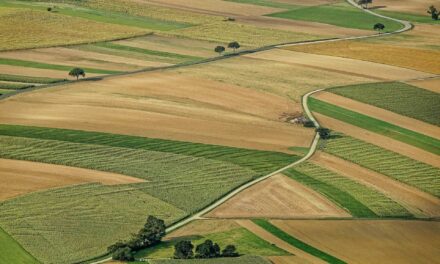 In order to increase the prosperity and welfare of farmers and the community, the government guarantees the availability of sustainable food agricultural land as regulated in Law No. 41 of 2009 on Protection of Sustainable Food Agricultural Land (“LP2B Law”), which has been revised under the Law No. 11 of 2020 on Job Creation (“Job Creation Law”). Sustainable Food Agricultural Land (LP2B) is a field of agricultural land that is determined to be protected and developed consistently to produce main food for national food self-reliance, security and sovereignty1. This LP2B protection aims to protect the area and land for food agriculture sustainably, protect the ownership of food agricultural land owned by farmers, realize self-reliance, food security and sovereignty, and realize agricultural revitalization2. Based on the provisions of Article 44 paragraph (1) of the LP2B Law, land that has been designated as Sustainable Food Agricultural Land is protected and prohibited for being converted.
In order to increase the prosperity and welfare of farmers and the community, the government guarantees the availability of sustainable food agricultural land as regulated in Law No. 41 of 2009 on Protection of Sustainable Food Agricultural Land (“LP2B Law”), which has been revised under the Law No. 11 of 2020 on Job Creation (“Job Creation Law”). Sustainable Food Agricultural Land (LP2B) is a field of agricultural land that is determined to be protected and developed consistently to produce main food for national food self-reliance, security and sovereignty1. This LP2B protection aims to protect the area and land for food agriculture sustainably, protect the ownership of food agricultural land owned by farmers, realize self-reliance, food security and sovereignty, and realize agricultural revitalization2. Based on the provisions of Article 44 paragraph (1) of the LP2B Law, land that has been designated as Sustainable Food Agricultural Land is protected and prohibited for being converted.
Then what about the land that has been designated as LP2B but is instead affected by the toll road project track? Does the existence of the project actually violate the LP2B Law? In the case of public interest and/or National Strategic Projects, this is excluded3. However, this must meet certain conditions as well, such as:
- A strategic feasibility study is carried out;
- A land conversion plan is drawn up;
- Freed ownership of rights from the owner;
- A replacement land for LP2B which was converted should be provided.
The toll road development project itself is included in the National Strategic Project group which is a program implemented by the Government, Regional Government, and/or business entities that have a strategic nature to increase growth and equitable development in order to improve community welfare and regional development4. So, it can be concluded that toll road tracks using LP2B are legal and do not violate the provisions of the law.
If LP2B function switching is prohibited, what about the other way around? Can land that does not have LP2B status be expanded into Sustainable Food Agriculture Land?
Regarding the transfer of non-LP2B land functions to LP2B, priority will be given to abandoned land and land of former forest areas that have not been granted land rights5. Abandoned land that can be converted into LP2B is the land that had been granted land rights, but it was not used whether partly or wholly as it should have been. This also applies to abandoned land which has not been used for 3 (three) years or more since the date of issuance of rights6.
Meanwhile, former forest area land that can be converted into Sustainable Food Agricultural Land is, if the land has been given the basis of control over the land, but partly or wholly is not utilized in accordance with a permit/decision/letter from the competent authority and is not followed up with an application for land rights or the land for 1 (one) year or more has not been used in accordance with a permit/decision/letter from the competent authority7.
Based on the description above, it can be concluded that the land that has been designated as Sustainable Food Agricultural Land is protected and prohibited for being converted except for public interest and/or National Strategic Project.
Agita Asmara Pratama Putri
Sources
- Article 1 paragraph (3) LP2B Protection Law
- Article 3 LP2B Protection Law
- Article 124 paragraph (1) Job Creation Law
- Article 1 paragraph (1) Presidential Regulation no. 109 of 2020
- Article 29 paragraph (3) of the LP2B Protection Law
- Article 29 paragraph (4) of the LP2B Protection Law
- Article 29 paragraph (5) of the LP2B Protection Law






